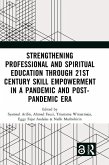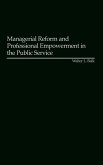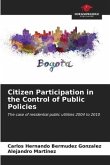How to qualify without a quality Basic Education? This book analyzes the Public Policies directed to Professional Education in Brazil, through the actions of the National Service of Industrial Learning (SENAI) Pernambuco, in the materialization of the National Program of Access to Technical Education and Employment (PRONATEC) during the government of the Workers' Party. In this work, structural and pedagogical mechanisms were considered, triggered by the institution to offer courses through the program, as well as the social and economic profile of students enrolled in the courses offered. Problems were identified in the selection of students, school dropouts, precarious infrastructure for the courses, difficulties raised by teachers in the teaching and learning process due to the absence of an educational base for students and the absence of mandatory internships that make it possible for students to enter the job market. The data show that PRONATEC is not only inserted within the context of flexible productive systems, as well as its direct contribution to the maintenance of selectivity and production of a less qualified and cheaper workforce.
Hinweis: Dieser Artikel kann nur an eine deutsche Lieferadresse ausgeliefert werden.
Hinweis: Dieser Artikel kann nur an eine deutsche Lieferadresse ausgeliefert werden.








